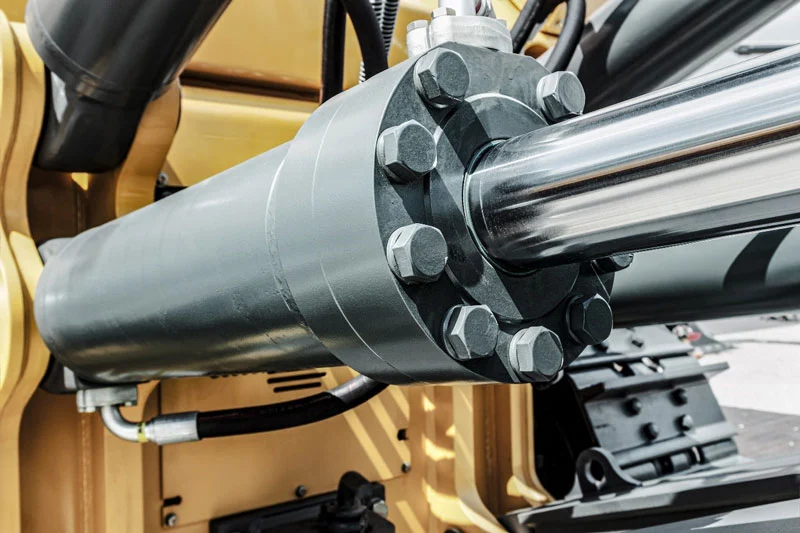Hydraulic cylinders work under heavy pressure and heat during normal operation. The wrong oil type increases seal wear and leads to early part failure. It also reduces the total life of the hydraulic system. hydraulic equipment makers spend years testing oils before listing approved types. Each oil is checked for flow rate and heat resistance. They also test how well the oil prevents metal parts from rubbing against each other when the machine runs.
Viscosity determines flow
How thick or thin the oil is affects everything a cylinder does. Thin oil moves through passages without much resistance, but it doesn’t create a strong enough film to protect moving parts. Thick oil protects better, but makes the pump work harder to push fluid around. Most cylinders need oil that maintains the right thickness even when temperatures change. Engineers use something called the viscosity index to measure this. Cold and hot performance is high when the number is high. As oil thins, pressure drops and the cylinder slows down. Cold makes it thicker, sometimes so thick that the system won’t start. The gaps between cylinder walls and seals are designed for oil of a particular thickness. Use the wrong grade and leaks develop, or friction gets too high.
Dirt destroys cylinders
Tiny dirt particles work like sandpaper inside a cylinder. They scratch the chrome on piston rods and damage the smooth walls where seals make contact. Every time the cylinder moves, the scratches get worse. Eventually, seals can’t hold pressure, and the cylinder loses power. Good oil contains chemicals that grab onto dirt and hold it until filters remove it from the system. Water creates its own set of problems. It has no lubricating ability and promotes rust on metal surfaces. When water gets mixed with oil, the fluid loses its ability to carry loads properly. Parts start grinding instead of sliding smoothly. Some oils separate from water easily and let it drain out. Other oils trap water and take it everywhere in the system. The demulsibility test measures how well oil releases water. Rust inhibitors in the oil formula prevent corrosion from starting, even when small amounts of moisture get inside.
Seals need compatibility
Rubber seals react in different ways to various oil types. Some oils make seals swell and get soft. Others dry them out until cracks appear. Getting this wrong creates leaks that waste oil and drop system pressure.
- Standard petroleum oil works with common rubber seals but can damage synthetic rubber compounds
- Synthetic oils perform well but attack some seal materials and make them brittle over time
- Biodegradable oils help the environment but need seals made from special materials
- Fire-resistant oils have harsh chemicals that eat through regular seals in just a few months
- Every cylinder maker tests their seals with particular oils before they tell customers what to use
Switching oils without checking the seals isn’t a good idea. Different oils can cause a seal to fail quickly. Additives in oil can damage seals more than base oil. This explains why cylinder makers get very specific about which oil brands and types they approve.
Correct oil selection keeps hydraulic cylinders steady for long service. Each system needs oil that matches its working temperature and viscosity. Additives must also suit the task done by the cylinder. Using low-grade oil that fails to meet these needs causes repair costs and longer downtime.

